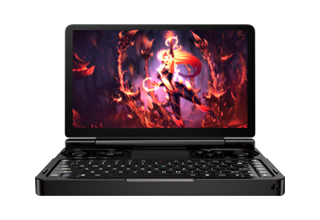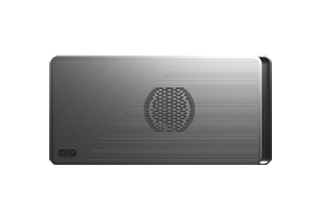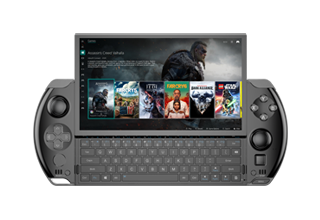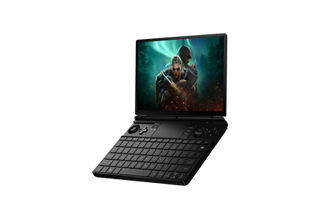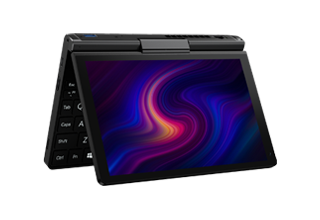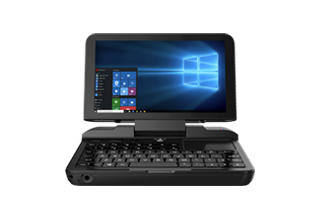AMD Fluid Motion Frames 2 Technical Preview Now Available

AMD has released a preview version of its new frame generation technology, AFMF 2, which is compatible with AMD Ryzen 7000, 8000, and 9000 series handheld devices, as well as the GPD G1 mobile graphics dock. Users with devices like the GPD WIN 4, WIN Max 2, and WIN Mini can download and experience the technology.
Reposted from: AMD Fluid Motion Frames 2 Technical Preview Now Available
AMD Fluid Motion Frames, or AFMF1, is our cutting-edge frame generation technology designed to increase frame rates and gameplay smoothness. It is integrated right into AMD Software: Adrenalin Edition and is part of AMD HYPR-RX2, our one-click performance enhancing solution that delivers amazing gaming experiences on AMD Radeon graphics cards.
AFMF works across thousands of games and is supported on AMD Radeon RX 6000 and 7000 series graphics cards and select AMD Ryzen Processors with Radeon Graphics, and gamers love using AMD HYPR-RX with AFMF, as seen in the video below. We polled gamers and AFMF received an average rating of 9.3/10 for image quality and smoothness.
Here at AMD, we are continuously working to improve our software technologies and we are excited to tell you that we have developed AMD Fluid Motion Frames 2, which is a significant upgrade from our initial version of this amazing technology. AFMF 2 adds new optimizations and tunable settings for a better frame generation experience, including AI-optimized enhancements for improved quality, lower latency, and better performance. We’ve also added interop support with AMD Radeon™ Chill, support for borderless full screen, and support for Vulkan® and OpenGL® games.
All this adds up to a substantial improvement over AFMF 1, and because we couldn’t wait to get this upgrade into gamer’s hands, we are releasing it as a technical preview so your feedback can help make AFMF 2 even better.
AI-Optimized Enhancements
We know many of you have asked for more control over how AFMF works with your games, so with AMD Fluid Motion Frames 2 we’ve introduced two new modes where the optimal settings are automatically enabled but advanced users can adjust them to their preferences.
The first is “Search Mode” which controls frame generation smoothness by improving how “fallback” works in AFMF 2. Fallback refers to when AFMF frame generation is temporarily disabled in high-motion scenes to ensure the best interpolated image quality, which can sometimes cause jitter that impacts the smoothness of the gaming experience.

In AFMF 2, we have made considerable improvements in frame generation by using AI-optimization to help develop an updated algorithm. At 1440p and greater, the Search Mode “Auto” setting automatically selects “High” mode, which reduces fallback for improved AFMF smoothness. The “Standard” setting is used for 1080p, which is the optimal setting for this resolution. We have also improved the overall image quality in AFMF 2 for a better gaming experience in any Search Mode setting when compared to AFMF 1.
Performance Improvements
The second adjustable mode available in the AMD Fluid Motion Frames 2 update is “Performance Mode”. When using supported discrete desktop and mobile graphics cards the default “Auto” setting for this mode is “Quality,” the same setting as used in AFMF 1.

The all-new setting available for this mode is “Performance” that reduces the overhead of AFMF 2 to help make high frame rate gaming experiences more achievable on a wider range of devices. This is especially beneficial when using AFMF 2 with integrated graphics cards and is now the default “Auto” setting on supported AMD Ryzen™ Processors with Radeon™ Graphics.
Lower Latency Frame Generation
We've also made some notable improvements in reducing the latency added by frame generation with this latest version of AFMF. These improvements apply across the board when using AFMF 2, no matter the settings mode, resolution, or hardware used. This makes the experience when using AMD HYPR-RX with AFMF 2 feel even smoother, not just look smoother. Check out the improvements in latency in Cyberpunk 2077®, where AFMF 2 combined with our in-driver AMD Radeon™ Anti-Lag technology delivers on average 28 percent lower latency at 4K using the “Ray Tracing: Ultra” graphics preset when compared to AFMF 1.

You can also combine AFMF 2 with our new in-game AMD Radeon™ Anti-Lag 2 technology for high frame rate low-latency competitive eSports gaming, even when using integrated graphics. In Counter-Strike 2 on our AMD Ryzen™ 7 8700G Desktop Processor with Radeon™ 780M Graphics, AFMF 2 + Anti-Lag 2 improves latency over AFMF by on average 12 percent while still delivering over 120 FPS at 1080p using the “Very High” graphics present.

Other Updates and Improvements
In addition to support for exclusive fullscreen modes, AFMF 2 now supports borderless fullscreen when using AMD Radeon™ RX 7000 and Radeon 700M series graphic cards. Also, AFMF 2 now works with games that use Vulkan® and OpenGL®, further increasing the already vast number of games that can be used with AFMF.
Additionally, we’ve enabled interoperability with AMD Radeon™ Chill, a feature that lets you define a driver-controlled FPS cap. When you enable Radeon Chill after enabling AFMF 2, it will automatically set the native FPS cap to be half of your AMD FreeSync™ monitor’s maximum refresh rate. Then, once AFMF 2 frame generation is applied, Radeon Chill will prevent the FPS going above the max refresh rate (which can cause screen-tearing and reduce image quality).
We recommend using AFMF 2 with Radeon Anti-lag when your expected maximum FPS will never reach your monitor’s max refresh rate, and AFMF 2 with Radeon Chill in games where your graphics settings are expected to deliver frame rates that will exceed your monitor’s max refresh rate.
AFMF 2 Product Support
AFMF 2 is supported on AMD RDNA™ 2 architecture-based graphics solutions and newer. You can also see what the default “Auto” settings are for each of the new AFMF 2 tunable modes in the table below.
|
Supported Graphics Hardware |
Resolution |
AFMF 2 Search Mode “Auto” default |
AFMF 2 Performance Mode “Auto” default |
|
AMD Radeon™ RX 6000 and 7000 series graphics cards (desktop and mobile) |
1440p and 4K |
High |
Quality |
|
1080p |
Standard |
Quality |
|
|
AMD Ryzen™ 7000 Series Processors with Radeon™ graphics, and higher |
1440p and 4K |
High |
Performance |
|
1080p |
Standard |
Performance |
|
|
*Excluding select AMD Ryzen™ 7000 Series Processors with AMD GCN and AMD RDNA™ 2 architecture-based graphics |
|||
AFMF 2 Technical Preview Download, Guidance, and What’s Next
Download the AMD Software: Adrenalin Edition Preview Driver for AFMF 2 from here, with additional technical details available in the release notes. We recommend that you uninstall your current AMD Software driver and do a driver clean up before installation.
As this preview driver provides an early first-look into AFMF 2, there may be issues and bugs present, which can be submitted through the AMD Bug Report Tool. General feedback and comments can be left on our AMD Red Team Community Forums.
You can expect updated versions of the AFMF 2 technical preview driver to be released that will provide further improvements and address bugs. We are planning on releasing AFMF 2 in our regular production software in Q4 of this year.
Stay tuned to our AMD Community channels and AMD social media accounts (X, Facebook, Instagram, TikTok) for the latest news about all our amazing AMD technologies, including AMD Fluid Motion Frames 2.
DOWNLOAD THE AMD SOFTWARE: ADRENALIN EDITION PREVIEW DRIVER FOR AFMF 2
-
GPD Win Max 2 (2025) is a mini gaming laptop with Ryzen AI 9 HX 370
This week handheld PC maker GPD launched an updated version of its GPD Win 4 handheld gaming PC with a 6 inch display and an AMD Ryzen AI 9 HX 370 “Strix Point” processor, which should bring a significant performance boost over the Ryzen 7 8840U “Hawk Point” chip in the previous-generation model.
넶30 2024-12-17 -
GPD launches Win 4 handheld gaming PC with Ryzen AI 9 HX 370
The GPD Win 4 is a handheld gaming PC with a 6 inch FHD touchscreen display that slides upward to reveal a physical keyboard for thumb typing and a design that makes the handheld look like an oversized PlayStation Portable… if the PSP had a keyboard and support for modern PC games.
넶40 2024-12-17 -
GPD Pocket 4 is an 8.8 inch mini-laptop with up to AMD Ryzen AI 9 HX 370 (crowdfunding)
The GPD Pocket 4 is a mini-laptop with an 8.8 inch, 2560 x 1600 pixel, 144 Hz display, support for up to an AMD Ryzen AI 9 HX 370 “Strix Point” processor, and a convertible design that lets you twist the screen 180 degrees and fold it down over the keyboard for use in tablet mode.
넶37 2024-12-17 -
GPD announces official pricing for its Pocket 4 mini-laptops — The $1,466 unit packs 12-core Ryzen AI HX 370, 64GB of RAM, 2TB SSD, and 144Hz 2.5K display
Back in August, GPD announced the Pocket 4 mini laptop, which was supposedly the first handheld to employ AMD's latest Strix Point APUs. Following that, GPD Game Consoles has recently shared the pricing structure for these handhelds at X—starting at $895 with AMD's Zen 4-based Ryzen 7 8840U model and as high as $1,466 if you want the flagship Ryzen AI 9 HX 370 decked out with 64GB of RAM and 2TB of storage.
넶45 2024-12-13 -
GPD Duo Laptop Review: A Game-Changing Dual-Screen Powerhouse
In a world where innovation is key to staying ahead in technology, GPD has made a bold move with its latest offering—the GPD Duo, a dual-screen laptop powered by AMD’s cutting-edge Ryzen AI9 HX 370 processor. This is not your ordinary laptop. The dual-screen design, paired with top-tier specs and functionalities, makes the GPD Duo an exciting and versatile tool, particularly for professionals and tech enthusiasts. As a top content writer, I’ve seen how critical it is to balance innovation with
넶15 2024-12-13


